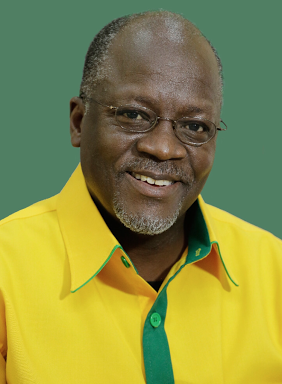Tanzanian Presidential Elections End in Controversy Due to Fraud Accusations
Timothy Georgetti
Staff Writer
Tanzania’s National Electoral Commission declared John Magufuli the winner of the 2020 presidential election held on October 28. Al Jazeera reports that the leaders of multiple opposition parties have claimed that the election was fraudulent following the declaration that Magufuli won with almost 85 percent of the votes. Opposition leaders, Tanzanian citizens, and international organizations alike claim that Magufuli, the incumbent leader, used his presidential powers to illegally influence the election in his own favor.
According to UN News, Magufuli intimidated voters through the threat and use of violence by the police force. At least ten people were killed and more than 50 injured on the semi-autonomous island of Zanzibar in pre-election confrontations with law-enforcement officers. Police-perpetrated voter and political suppression continued after the Tanzanian polls closed, with the police arresting more than 15 opposition leaders and Magufuli critics. Other reports of fraud include claims of ballot tampering and stuffing, all of which have been denied by the National Electoral Commission.
The Guardian explains that these election fraud efforts were amplified by a social media and mass-messaging blackout imposed by the Magufuli government on Election Day. The government not only urged national telecommunications providers to impose these service blackouts, but also installed its own hardware, allowing it to censor internet content and throttle speeds. These efforts were aimed at preventing Tanzanian voters from sending or receiving photographs or videos on election day, affecting a broad range of internet services from WhatsApp to Twitter.
These pervasive tampering efforts both helped Magufuli secure a second presidential term and allowed his political party, Cha Chama Mapinduzi (CCM), to win an overwhelming majority in the Tanzanian parliament. As counted by The Brookings Institute, the CCM won 194 parliament seats, leaving only two seats to be filled by opposition parties. This preponderance of parliamentary power will allow the CCM to easily obtain the two-thirds majority vote needed to amend Tanzania’s constitution.
While Magufuli has vowed to only seek two presidential terms in accordance with the current constitutional limit, Aljazeera explains that many CCM parliamentarians are calling for a constitutional amendment to end presidential term limits. Some have even vowed to ensure Magufuli remains in power, regardless of whether Magufuli desires it or not. If they choose to go through with it, the CCM’s newfound majority will allow the party to easily amend the constitution and indefinitely extend Magufuli’s presidency.
The opposition parties’ only options for redress are mass-protests to demand a rerun or unlikely foreign intervention. The New York Times explains that, unlike in other democratic countries, once the National Electoral Commission declares a presidential winner, no Tanzanian court can investigate the results of an election, regardless of how prevalent the irregularities are. The lack of easy recourse for the opposition parties and the extent of Magufuli’s power as the incumbent mean that it is unlikely that a rerun will take place or that Magufuli will be removed from office. This leaves the governance of the people of Tanzania in the hands of President John Magufuli for at least the next five years of his second presidential term. BBC News notes that Magufuli ran for his first term on an anti-corruption campaign. However, that original five-year term was replete with political suppression and authoritarian censorship of political dissidents and critics.
Speaking to Aljazeera, Michaela Collord, a junior research fellow at Oxford University, described that Tanzania once had one of the more trustworthy democratic processes in the region. She underscored that while there was always a noticeable level of election fraud, parties in opposition to the CCM, which has been in power since Tanzanian independence in 1961, had a chance to win elections. Now, she argued, it seems that even the democratic freedom of voting has been completely corrupted.

